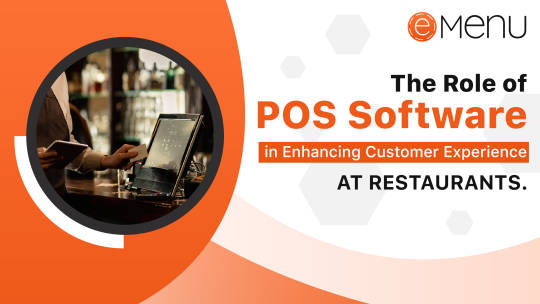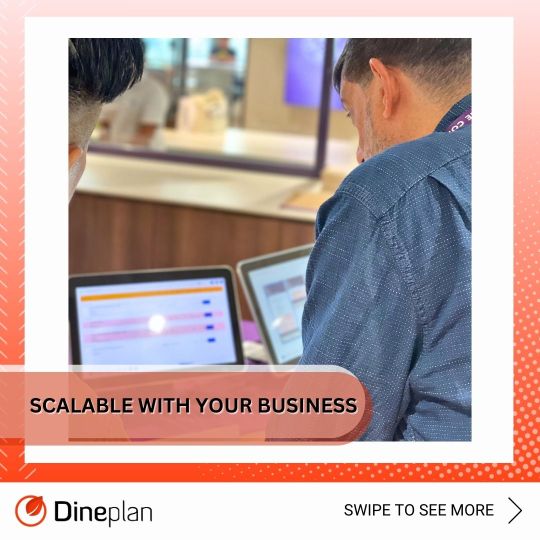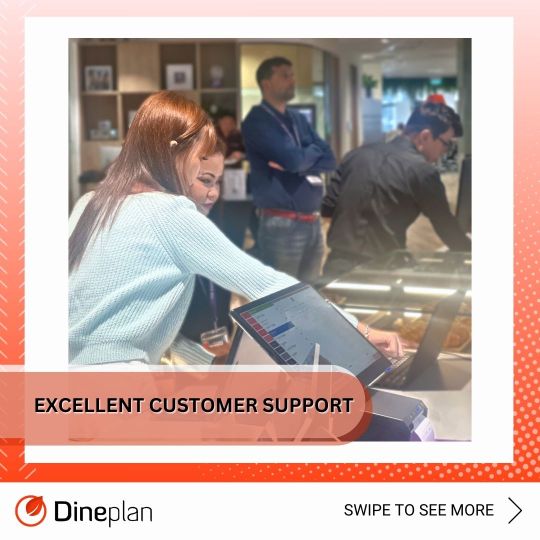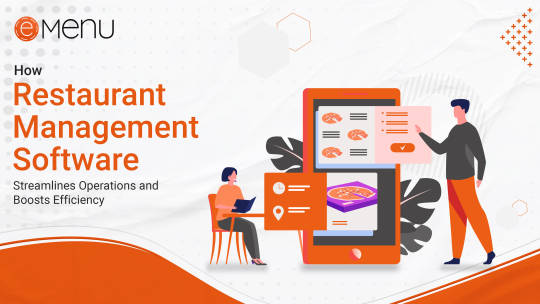#Restaurant Management System
Text
DinePlan - Restaurant Software Dubai
Embark on a journey with Dine Plan, a beacon in the gastronomic universe. This software suite is a symphony of innovation, designed for the diverse tapestry of dining establishments. With its multilingual prowess and cost-effective design, it stands as a paragon in restaurant management. Dine Plan transcends the conventional, transforming mundane operations into seamless symphonies. It caters to every culinary scenario, from quaint cafes to majestic dining arenas. This tool is not just a solution; it’s a revolution, redefining dining efficiency. Embrace Dine Plan and witness your restaurant’s transformation into an epicenter of excellence and sophistication, where every interaction resonates with perfection.
#Restaurant Management Software#Restaurant Management System#Restaurant Software Dubai#Restaurant Management Software Dubai#Restaurant Management Software in Dubai
2 notes
·
View notes
Text
The Role of POS Software in Enhancing Customer Experience at Restaurants.

In the ever-evolving world of restaurants, providing an exceptional customer experience is crucial for success. From delectable cuisine to warm hospitality, every aspect counts. One significant factor that often goes unnoticed is the role of Point of Sale (POS) software in enhancing the overall customer experience. In this blog post, we will explore how POS software has revolutionized the restaurant industry and why it is indispensable for creating a seamless and satisfying dining experience.
Streamlined Ordering Process:
POS Software has revolutionized the way orders are taken and processed in restaurants. Gone are the days of manual order-taking, which often led to errors and delays. With the introduction of POS systems, servers can now quickly and accurately take orders directly at the table, transmitting them instantly to the kitchen. This streamlined process minimizes the chances of mistakes and ensures prompt service, allowing customers to enjoy their meals without unnecessary waiting times.
Personalized Service:
Another crucial aspect of enhancing the customer experience is personalization. OnlineEMenu POS Software enables restaurants to store detailed customer information, including preferences, dietary restrictions, and previous orders. With this data readily available, staff can provide a personalized dining experience tailored to individual tastes. From suggesting favorite dishes to accommodating special requests, the ability to remember customer preferences enhances customer satisfaction and fosters loyalty. OnlineEMenu POS Systems also facilitate effective customer relationship management by allowing targeted marketing campaigns and loyalty programs based on customer data.
Efficient Payment Options:
The payment process can often be a bottleneck in a restaurant's operations, leading to frustration for both customers and staff. POS software offers efficient payment options that simplify transactions, saving time and effort. Modern POS systems support various payment methods, including credit cards, mobile payments, and even cryptocurrencies. By offering a wide range of payment options, restaurants cater to customers' preferences and create a seamless payment experience. Additionally, integrated POS systems can split bills, apply discounts, and manage gratuities automatically, ensuring accuracy and eliminating the need for manual calculations.
Real-Time Inventory Management:
POS software goes beyond just facilitating transactions; it also plays a vital role in Inventory Management System. By keeping track of ingredient quantities and real-time sales data, restaurants can optimize their inventory levels and avoid stockouts or wastage. Efficient inventory management leads to smoother operations, ensuring that customers are not disappointed by unavailable menu items. Moreover, POS systems can generate automatic alerts when certain items reach low stock levels, enabling proactive ordering and maintaining a consistent dining experience.
Insightful Reporting and Analytics:
POS software offers valuable reporting and analytics capabilities, providing restaurant owners and managers with crucial insights into their business performance. Detailed reports on sales, customer preferences, peak hours, and more enable data-driven decision-making. These insights allow restaurants to identify trends, evaluate the success of menu items, and adjust pricing strategies accordingly. By leveraging the power of data, restaurants can continually enhance the customer experience, addressing any shortcomings and meeting evolving demands.
Conclusion:
In today's competitive restaurant industry, delivering an exceptional customer experience is essential for success. POS software has emerged as a game-changer, revolutionizing the way restaurants operate. From streamlined ordering and personalized service to efficient payments and insightful analytics, POS Systems empower restaurants to provide a seamless and satisfying dining experience. Embracing the power of technology through POS software not only enhances customer satisfaction but also improves operational efficiency, leading to increased profitability. As restaurants continue to adapt to changing consumer expectations, POS software remains an indispensable tool for delivering exceptional dining experiences.
youtube
#restaurant management software#restaurant pos system#restaurant management system#pos billing software#pos system#pos software#restaurant pos software#point of sale system#point of sale (pos) system#OnlineEMenu#point of sale#restaurant software#restaurant#restaurant billing software#restaurant point of sale#restaurant sales#restaurant ordering system#restaurant business#Youtube
5 notes
·
View notes
Text
#Prepare to Open a Restaurant#restaurant business#restaurant#restaurant management system#restaurant technology#eatos blog#eatos
0 notes
Text
A restaurant management system is a type of point-of-sale (POS) software specifically designed for restaurants, bars, food trucks and others in the foodservice industry. They include order management, inventory tracking, staff scheduling, and customer relationship management.
0 notes
Text

Restaurant Management System cater to diverse users in the hospitality industry, including owners, managers, and staff involved in daily operations, financial management, and order processing. Crucial for kitchen and front-of-house staff, it also aids marketing professionals in analyzing customer data for data-driven decisions.
0 notes
Text
What is POS system?
(Human directed ai content.)
A POS (Point of Sale) system is a computerized system used by businesses to complete sales transactions. It typically includes hardware components such as a cash register, barcode scanner, receipt printer, and card reader, along with software that manages inventory, sales data, and customer information.
A POS system allows businesses to efficiently process sales, track inventory levels in real-time, generate sales reports, manage customer data, and streamline various aspects of retail or hospitality operations. Modern POS systems often offer additional features such as integration with accounting software, employee management tools, and support for online sales channels. They are used in various industries, including retail stores, restaurants, hotels, and other service-oriented businesses.
Disclaimer:
Information in the articles is not business or investment advice, and these articles are created primarily
for entertainment purpose. THE USE OR RELIANCE OF ANY INFORMATION CONTAINED
ON THESE ARTICLES IS SOLELY AT YOUR OWN RISK.
#pos system#what is a pos system#what is the best pos system#best pos system#what is pos#restaurant pos system#retail pos system#what is pos system#point of sale system#pos systems#small business pos system#best restaurant pos system#restaurant management system#system#what is pos system for restaurant#what is the best point of sale system#best pos system for retail#pos system for restaurants#best pos system for restaurant#best pos systems#What is POS system
1 note
·
View note
Text
#AI Enabled Restaurant#restaurant management system#full service restaurant#quick service software#restaurant point of sale#restaurant pos system#self service kiosk#online ordering system#quick service pos system#restaurant pos software#restaurant management software#kitchen display system
0 notes
Text
#How Much Does a Retail POS System Cost#retail pos system#pos system#best retail pos system#best pos system for retail#restaurant pos system#best pos system#restaurant management system#how much does a pos system cost#best retail pos systems#best pos systems retail#pos system cost#how much does a point of sale system cost#best retail pos system in 2021#choose best pos system for retail store#point of sale system#pos system for retail#retail pos systems#best retail pos systems in 2020
1 note
·
View note
Text





#Restaurant Management Software Singapore#Restaurant Management System Singapore#Restaurant Management System
0 notes
Text
Explore the essential ingredients for a successful restaurant business. From intuitive order management and inventory tracking to seamless staff scheduling and insightful analytics, we dissect the key functionalities that can transform your restaurant operations.
#Restaurant Management#Restaurant Management Software#Restaurant Management Software Features#Restaurant Management System
0 notes
Text
#restaurant sales#restaurant business#restaurant trends#restaurant marketing#restaurant management software#restaurant management system#restaurant management#customer experience#customer engagement#customer satisfaction#restaurant success#hospitality#hospitalitynews#hospitality trends#hospitalitybusiness#hospitalitytechnology#restaurant solutions#restaurant technology
1 note
·
View note
Text





#Restaurant Management Software#Restaurant Management System#Restaurant Software Dubai#Restaurant Management Software Dubai#Restaurant Management Software in Dubai
0 notes
Text
How Restaurant Management Software Streamlines Operations and Boosts Efficiency

The restaurant industry is highly competitive, and efficient operations play a crucial role in the success of any establishment. In today's digital age, restaurant management software has emerged as a powerful tool to streamline operations and boost efficiency. This blog post explores the various ways in which restaurant management software revolutionizes the way restaurants operate, enabling them to deliver exceptional customer experiences while optimizing their backend processes.
The Role of Restaurant Management Software:
Online eMenu Restaurant management software is a comprehensive solution designed to handle the diverse aspects of running a restaurant. It encompasses a wide range of features and functionalities that simplify day-to-day operations, enhance productivity, and improve overall efficiency. From Restaurant tasks to Restaurant operations, the software offers a centralized platform to manage and streamline various processes.
Streamlining Restaurant Operations:
In the bustling environment of a restaurant, managing Restaurant operations efficiently is essential. Online eMenu Restaurant management software offers tools for reservation and table management software, allowing customers to book tables online and providing staff with real-time updates on reservations. This helps optimize table turnover and maximize seating capacity, leading to better customer service and increased revenue. Additionally, the software integrates with the point-of-sale (POS) system, enabling seamless order taking and processing.
Enhancing Restaurant Efficiency:
Efficiency in the Restaurant operations is equally important for smooth restaurant functioning. With restaurant management software, staff scheduling and labor management become hassle-free. The software automates scheduling, taking into account factors such as staff availability and workload, resulting in optimized staff allocation and improved productivity. It also tracks labor costs and performance metrics, providing valuable insights for effective decision-making.
Supplier and procurement management is another critical aspect that software addresses. By streamlining the ordering process and managing suppliers, restaurants can ensure timely and accurate deliveries. The software facilitates inventory forecasting, minimizing wastage and optimizing stock levels. Real-time reporting and analytics capabilities empower restaurant owners and managers to monitor sales, expenses, and performance, enabling data-driven decision-making.
Customer Relationship Management (CRM):
Building strong customer relationships is vital for the success of any restaurant. Restaurant management software Customer Relationship Management (CRM) helps in creating and maintaining customer profiles, capturing preferences, and analyzing data to deliver personalized experiences. Additionally, the software facilitates the implementation of loyalty programs and targeted marketing campaigns, allowing restaurants to engage with customers effectively and increase customer retention.
Ensuring Data Security and Accessibility:
Data security is a paramount concern in today's digital landscape. Restaurant management software offers robust security measures to protect sensitive customer information and business data. Cloud-based solutions provide data backup and ensure accessibility from anywhere, anytime, allowing owners and managers to monitor and manage their restaurant's operations remotely. User access control features further enhance data privacy and confidentiality.
Case Studies: Success Stories of Restaurant Management Software Implementation
Real-life examples of restaurants that have implemented restaurant management software can provide valuable insights into its effectiveness. Case studies highlighting specific improvements and outcomes achieved through the software demonstrate how it has helped restaurants streamline their operations, enhance efficiency, and deliver exceptional dining experiences.
Challenges and Considerations:
While restaurant management software offers numerous benefits, it's essential to consider potential challenges and factors when selecting the right software. Factors such as cost, scalability, user-friendliness, and integration capabilities with existing systems should be evaluated before making a decision. Addressing these considerations ensures a successful implementation and maximizes the software's potential.
Conclusion:
Restaurant Management software has become a game-changer in the industry, revolutionizing the way restaurants operate. By streamlining operations, enhancing efficiency, and optimizing processes, this software empowers restaurants to deliver exceptional customer experiences while driving profitability. As technology continues to shape the future of the restaurant industry, embracing restaurant management software becomes essential for those seeking.
#restaurant management software#contactless menu system#qr code#restaurant management system#restaurant pos system#contactless menu#contactless qr code menu#contactless ordering app#point-of-sale (POS) system#point-of-sale system#pos billing software#restaurant pos software#pos system#pos software#restaurant software#restaurant sales#restaurant#qrcodemenu#qr code menu#cloud based pos billing system#cloud based pos billing software#crm software#crmintegration#restaurant crm#restaurant crm software#crm development#online food ordering software#online food ordering system#food ordering system online#Restaurant Table Booking
4 notes
·
View notes
Text
#Online Ordering & Delivery#restaurants#restaurant operations#restaurant management#mobile ordering#restaurant#restaurant management system#eatos
0 notes
Text
Restaurant software is the best restaurant management system with a website and mobile application. You need a business plan and restaurant management system to accelerate your restaurant business. We have created a cost-effective software for you so that your restaurant billing software or restaurant POS software work together.
#restaurant marketing#restaurant point of sale#restaurant pos system#restaurant management software#restaurant design#restaurant data scraping#restaurant management system#restaurant menu scraper#restaurant moodboard#restaurant software#restaurant style#restaurant sales#restaurant seo#restaurant services#restaurant
1 note
·
View note
Text
What other systems does Restaurant Management System interact with?
Restaurant Management System optimize hospitality operations through various integrations. Integration with Point-of-Sale (POS) systems ensures seamless order and payment processing. It collaborates with inventory management for optimized ingredient ordering and waste reduction. Linking with reservation platforms streamlines table management, while integration with accounting software simplifies financial data entry and reporting.
0 notes